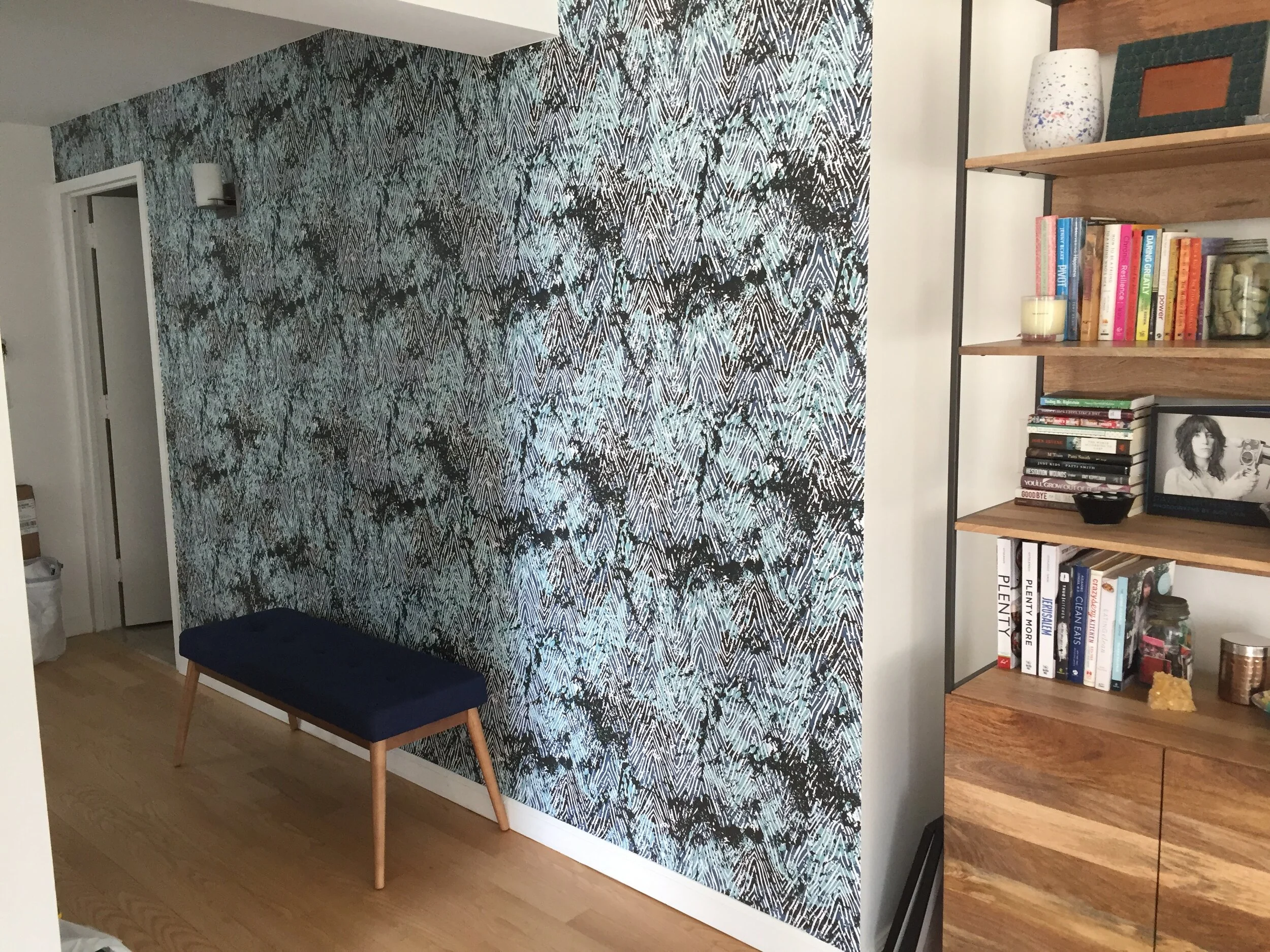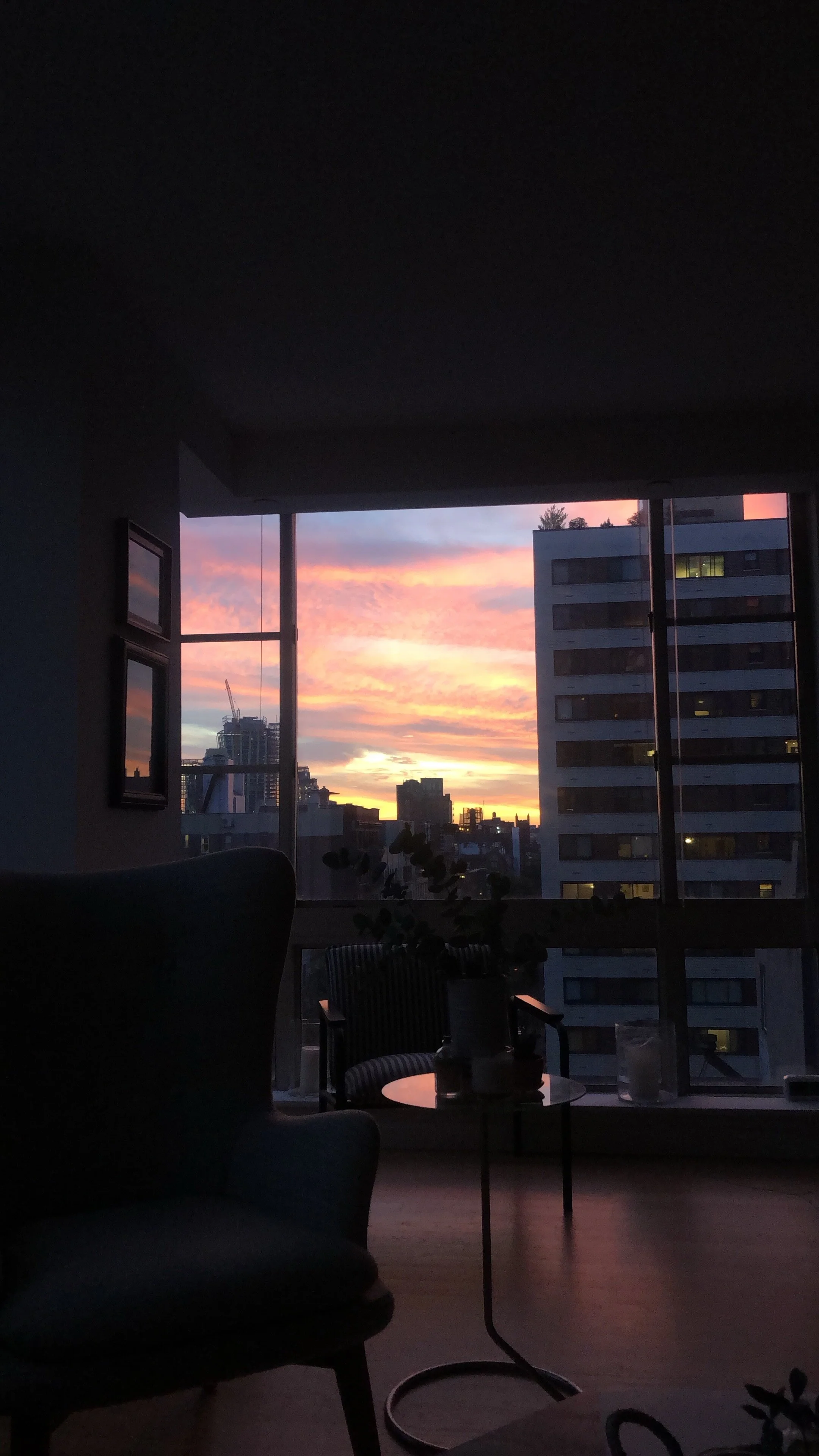Saying Goodbye to My Home on FaceTime
“The streets are so busy, wow,” I said to my Uber driver, as he drove up Hudson from the West Village to Gramercy.
“Oh, you can’t even imagine what it was like here at the beginning,” he said, assuming that I wasn’t in the city in March when New York was the epicenter of the pandemic.
He was right, but I couldn’t get myself to admit it. I wanted him to think I had banged on my pots and pans in the window thanking the frontline workers at 7 pm each night, unable to sleep because of the constant sirens and ambulances.
“I’ve lived here my entire life,” I said, not wanting him to know I had deserted my beloved home. I knew I’d come back, I always come back. I temporarily escaped as I’m immunocompromised and knew it’d be safer to be out of the city than afraid to touch the buttons in my elevator let alone run into neighbors before masks were mandated.
Years prior I was stunned when several people asked me if I was going to leave New York City after 9/11. How dare they, I thought. I could never leave my city, this is my home, it’s all I know.
I moved out of my parents’ apartment in Manhattan when I was 17 for college. Several years later, I moved back in with them for a few months while I figured out my next spot which turned out to be three different roommates in the East Village, a studio in the West Village, a dreary one-bedroom walk-up in Chelsea, and most recently a sunlit one-bedroom in a doorman building in Chelsea.
My Chelsea apartment is the most adult apartment -- I put the most time, energy, and money into it. I hired a handyman to put up a statement wall with adhesive blue and black abstract print wallpaper and put black metal sconces with gold finishes above my nightstands. After living there for almost three years, I had custom blackout shades installed in the apartment, something I’d delayed doing for so long because I didn’t want to spend the money on a rental. Prior to moving in, I got rid of things I didn’t have an attachment to. Books I wasn’t going to read again or didn’t have yellow highlighter throughout reminding me why I kept them. Clothes I was never going to wear aside from a few pairs of heels I was determined I’d find an event to wear them to.
My apartment is centrally located, full of floor-to-ceiling windows, and customized with some of my favorite things. Ceramic mini bowls in different shades of blues that I’d collected over the years from my travels filled my radiator. On the wall between my windows was a framed setlist from The National concert that a roadie handed me after the show at Forest Hills Stadium in fall 2018. There are two yellow shelves my cousin, a carpenter, custom built for me to display my collection of Ottolenghi cookbooks that I don’t use, but love to look at. The walls are covered in photographs I took in Tel Aviv that were featured in my solo photography exhibit in 2009. Over my couch is a 40x60 plexiglass photograph of the Tel Aviv beach snapped from a helicopter that guests assume is a Gray Malin. There’s a tiny white-framed photo in my kitchen by artist Brittany Wright of persimmons, my favorite, rare fruit that has a short season in New York. Another framed photo, this time of Patti Smith and all of her books, is displayed on my shelf in a way that my client once referred to as a “serial killer shrine.”
My Chelsea apartment had been a home for friends — get-togethers and one rained out summer party that led to us dancing indoors, snapping photos in the kitchen (because where else do people hang out, the smallest spaces of course), scream-singing, and jumping on my couch like teenagers.
Potluck dinners had also been a favorite amongst friends, a concept I decided to bring to my business coaching clients. Every few months they’d have the opportunity to meet and learn from each other, share similar challenges and know they weren’t alone in starting a business. I’d serve vegetable crudite, cheeses, spanakopita and samosas before setting up the vegetarian buffet. I’d anxiously await their arrival while blasting ‘Everybody’s Coming to My House” by David Byrne. I’d rearrange the napkins on the coffee table, splaying them out like a deck of cards. I’d dip a carrot or pita chip into my homemade hummus or red pepper dip then swirl it around to make it look like nobody had touched it yet.
As things started to take a sharp turn for the worse during the COVID-19 pandemic in New York City in March, it was clear that being at my beloved apartment wasn’t the right thing for me. I’d be cooped up, as so many people were over the last year and afraid to leave my sanctuary. I decided to spend quarantine in Long Island with my parents where I’d have more space, not be alone and wouldn’t be as fearful leaving the house for a daily walk.
Living with a rare immunodeficiency that mainly affects my lungs, I knew I was in the high-risk category. This made the fear of the virus even more intensified. When my mom watched MSNBC each day, I debated joining her. I quickly became a fan of Rachel, Joy and Nicolle but wasn’t sure I wanted to hear and see the details of what was happening in hospitals. When I heard healthy people in their 30s talk about how the only way they could take normal breaths was by laying on their stomach or in tabletop position, I started to visualize myself in a hospital bed. “I can’t watch this,” I’d say after suffering through the show longer than I should have. I worried whether my body would have the strength to fight this disease -- my chest tightened just thinking about it.
I quickly felt like a child again, living with my parents at 35 with no sign of when I’d have my own home again.
After a few weeks out of the city, my cousin, a real estate broker, suggested I give up my apartment.
“You’re not going to be there for a while, and I promise we’ll find you an even better apartment when it’s safe for you to return.” I couldn’t imagine a better apartment I’d be able to afford in a location I wanted to be in. But I couldn’t stomach writing rent checks anymore to a place I have no sense of when I’ll get back to. As it was, I had already been out of the country for six weeks before the pandemic. It’s already been too long since I slept in my own bed.
I gave up my apartment.
I found someone I knew to take over my lease. Anna, a home organizer I’ve worked with previously and trusted, packed my whole apartment for me. I pressed pause and play 20 times on a video of my apartment while creating a Google document of every item to direct her what should be packed together and if it went to storage or was to be sent to my parents house. I didn’t have the opportunity to say goodbye to the place I called home for three years -- so quickly it became no longer mine. As movers arrived to put pieces of my life into storage, I wondered when I’d see them again. When will I have a place of my own again?
I’m not someone who loses things -- my phone, keys, Airpods or chargers. During the phase of not bringing cardboard boxes into our house because it seemed the virus lived on it, we would open them in the garage with gloves on. Sometime between April and May, I used my apartment keys to open boxes. After moving out, my building management asked me to send them my keys and I couldn’t find them. The keychain said, “This must be the place” which is one of my favorite songs by The Talking Heads. While I looked everywhere in the garage, the house, the empty boxes and trash and couldn’t find them — it was clear that the apartment was no longer mine.
I’ll miss my friend in the neighborhood calling me to wave down from my window to the street as she takes her weekly trip to Trader Joe’s. I’ll miss sitting in the dark watching the sunsets out my window -- the blues, pinks, oranges in the sky and the movement of the clouds. I’ll miss my next door neighbor's dog walker waking me up every morning by his loud voice saying, “C’mon Basil, let’s go! Have a good day, Sarah!” and slamming the door shut making my walls shake. I’ll miss gossiping with the weekday evening doorman about the people in the building. I’ll miss taking the wagon home from Trader Joe’s and the look on strangers' faces as they assume I’m stealing all the food in my cart. But most of all, I’ll miss my freedom after nine years of living alone and now having no concept of when I’ll have my own place again.
I felt really sad to be letting go of my apartment. I no longer had my freedom of my own home with my stuff, my view and my comfort. I didn’t know when I would get that back. Where would my next apartment be? Does my cousin really think he can find me something better than this place?
My parents and I spend our days apart -- me mainly in the basement at my makeshift desk taking client calls, joining a writing class and catching up with friends who had scattered across the country. Some were living with their parents too, while others were having babies and buying homes. In the evening, my parents and I would meet on the white couches in the living room to meditate before preparing and eating dinner together. My mom and I would watch an episode or two of a show while my dad played the drums, guitar or keyboard in the basement. I enjoyed my time spent with them, but constantly questioned how long this would last.
In May, I received a FaceTime from Anna, who packed up my whole apartment alone in a day.
“I did a final sweep. I think we’re all good here,” she said.
“Amazing, show me around,” I responded.
“Oh wait, it’s 7 pm, I hear clapping,” she said.
She walked over to my window, opened it and we screamed and clapped together.
My last few minutes, virtually, in my apartment were saluting the frontline workers. It suddenly felt like the best way to say goodbye to this chapter of my life.
At the beginning of the new year, I really missed the city. I missed my freedom, the ability to walk around the city streets, people watching, having access to any food at any hour of the day. I missed my friends even if it meant walks in the park or freezing hangouts on roofs. I returned to my city, to my childhood apartment as my parents remained in Long Island. As I reach one year since I gave up my apartment, I don’t know when I’ll get a place of my own, but at least I’m in the city I call home.



